Wednesday, February 18, 2015
Rebecca Estepp is a San Diego mother whose son Eric developed a fever after his Hepatitis B shot when he was 9 months old. Estepp blames vaccinations for her son's eventually diagnosed autism.
Two Oregon mothers—Jennifer Margulis and Lynn Barton—do not vaccinate their children by the federally recommended schedule in a state with one of the highest rates of vaccine exemptions in the country. "I think there are too many, and they're given too early," Barton said in a CNN interview.
Mary Jo Perry, a Mississippi mother of three, fought for years to obtain a medical exemption for her middle son, John. He had seizures within days of being vaccinated eight years ago, when he was 5 years old. Her oldest son, who was vaccinated on schedule, "wound up with some autism-like stuff going on," Perry told the Jackson Free Press.
National media outlets have produced myriad stories about vaccinations and preventable diseases in recent weeks, prompting heated debate. The media have engaged conservative politicians, including U.S. Sen. Rand Paul of Kentucky and New Jersey Gov. Chris Christie, who are supporting families resisting government-mandated vaccinations. They've told stories about parents of children with autism, parents of children with vaccine injuries, and parents who simply don't want to subject their children to multiple shots before they're 2 years old.
Locally, though, the media have not been able to report a story of a Mississippi mother with a child who has been infected with measles, mumps, rubella or any number of diseases that modern medicine has helped to prevent and, in some cases, eradicate.
That is because Mississippi has the highest rate of vaccinations in the country—nearly 100 percent of its kindergarteners are up-to-date on their shots. Mississippi is one of only two states in the country—the other being West Virginia—that only allows vaccine exemptions for medical reasons, not religious or philosophical. While other states are seeing a resurfacing of diseases, Mississippi children remain protected against them.
Perry, a Pelahatchie resident who is co-director of Mississippi Parents for Vaccine Rights, doesn't see this as positive, because the high rate of vaccinations are due to the Mississippi Department of Health's strict vaccination requirements. She is leading the fight for more lenient vaccination laws in the state.
The timing of the anti-vaccination movement gaining political traction is interesting, coming soon after an outbreak of a disease once thought long gone in the United States.
Since December 2014, a measles outbreak across 14 states has infected more than 120 people nationwide—many of whom did not receive the combined measles, mumps and rubella vaccine, referred to as MMR. The initial measles exposure occurred at Disneyland in California, a state where some areas have a vaccination rate as low as 50 percent.
Perry thinks the outbreak in places like California is more about illegal immigration as opposed to lenient vaccination laws in the states that are seeing a reemergence of preventable disease. "As far as outbreaks go ... my question is, what is their vaccination status? And what is their citizenship status?" Perry said.
Regardless, Perry's efforts have made their way to the Mississippi Capitol, where children's health has become a political issue.
Victim of Success
Dr. Thomas Dobbs, state epidemiologist district health officer, said any child who has adverse effects as a result of vaccines and hasn't finished his or her schedule can get a medical exemption, the only kind of exemption the state allows.
"People are now saying, 'OK, this is what can happen,'" Dobbs said of the current national outbreak.
In 2000, the United States declared that vaccinations had effectively eliminated measles throughout the country. But the growing opposition to vaccines is beginning to dial back the achievement. Some people believe the risks associated with vaccinations outweigh the risk of the diseases they are designed to prevent.
The medical community, which reports that the risks associated with vaccinations are lower than that of aspirin, couldn't disagree more.
Health professionals such as Dobbs conclude that vaccinations have become a victim of their own success. Young parents today haven't lived through the devastation of the diseases that vaccinations have nearly eliminated.
Vaccinations have completely eradicated polio, smallpox and diphtheria in the United States, reduced the number of cases of measles, mumps and rubella by 99 percent, and greatly decreased the frequency of several other infectious diseases, such as flu and pneumonia.
But immunization is a collective effort, a fact that seems lost on many of those fighting against vaccines. For example, 95 percent of children must be vaccinated against measles for the vaccine to be effective in preventing the spread of the disease.
Perry's MPVR wants Mississippi parents to be able to receive vaccine exemptions for reasons other than the child's health. The Mississippi Supreme Court found in 1979 that religious exemptions violate the Constitution.
Twenty states give exemptions for philosophical reasons and the rest—excluding West Virginia, which only has medical exemptions—give exemptions for religious reasons.
The anti-vaccine movement is rooted in states such as California, Washington and Oregon, with combinations of liberal and so-called "crunchy" cultures with a general desire to live naturally, with pockets of anti-government residents who oppose vaccinations for more political reasons.
Dobbs said he gets the health concerns: He eats whole foods and hates preservatives.
"I understand the compulsion to be natural," Dobbs said. "But to some level, what has been natural historically is not good for people. What's natural is for people to die before they're 40. What's natural is for 50 percent of women to die in childbirth. What's natural is for the majority of children to die in infancy."
Somewhat disconcerting in this "debate" is that the media haven't just given the vaccine pulpit to parents, but to public officials, who have offered their opinion without using any scientific evidence to back it up.
With politicians like Rand Paul and Chris Christie speaking out in favor of parental choice in regards to vaccinations, the movement expanded to include more than hippies—now it's got libertarians and the Tea Party in its ranks.
"I have heard of many tragic cases of walking, talking normal children who wound up with profound mental disorders after vaccines," said Paul, who is a trained ophthalmologist.
"I'm not arguing vaccines are a bad idea. I think they are a good thing, but I think the parent should have some input. The state doesn't own your children. Parents own the children. And it is an issue of freedom and public health."
The day after Paul made that statement, he walked it back somewhat, even making his own vaccine booster shot public. But the damage was done.
Christie touted parental choice after offering up, "We vaccinated ours."
"Parents need to have some measure of choice in things as well, so that's the balance that the government has to decide," Christie said.
Mississippi's own Tea Party darling, Sen. Chris McDaniel, R-Ellisville, echoed these sentiments and filed his own vaccine-exemption bill—which drew outrage from citizens who are proud of the state's strong public health policy regarding preventable diseases.
"What you hear when people are reacting initially is more out of fear and not out of reason and logic," McDaniel said. "Now, me personally—I've got two kids—we chose to vaccinate. But I believe ultimately that's a parental choice."
'No One Has To Be Immunized'
Instead of responding to the theme park-centered epidemic by taking measures to ensure children are protected, Mississippi politicians are jumping at the chance to get behind what some see as an anti-government political wedge issue—one that may have more currency than the wedge issues of the recent past.
With LGBT rights gaining momentum nationwide and federal decisions knocking down recent attempts to limit a woman's right to access abortion, the far right is losing some ground in the culture wars. But the "vaccine choice" movement could be exactly what conservatives need to prove their dedication to "family first" values—and convince voters of their hearty distrust of the government.
Of course, parents in the U.S. already have the option to vaccinate or opt out of vaccinating their child. But opting out in a state such as Mississippi means limiting other privileges. "No one has to be immunized," Dobbs said. "You have to be immunized if you're going to enter the public space and put others at risk."
Now, the effort in Mississippi centers on giving parents the ability, by way of state-granted vaccine exemptions, to send their unvaccinated children to school.
McDaniel authored Senate Bill 2800, a vaccine-exemption bill, which would have allowed unvaccinated children to attend school if the parent signed an affidavit claiming the vaccination is "contrary to their beliefs."
The bill died in committee.
But House Bill 130—which, in its original form, would have done the same thing—remained alive until Feb. 12. It died on the calendar, but like many lawmakers say, a bill isn't dead until it's dead, dead, dead. Author Rep. Mark Formby, R-Picayune, along with 23 additional authors, supported an exemption from vaccinations for "conscientious beliefs."
After the House Public Health Committee made amendments, HB 130 remained just a carcass of what it once was—a "parental choice" bill.
The committee scrapped language that would have created a philosophical vaccine exemption and the ability for parents to get exemptions from doctors anywhere in the country.
Instead, the bill would have made technical changes to the way the state processes medical exemptions from vaccines. Today, when a doctor grants a medical exemption, the doctor sends the request to the Mississippi State Department of Health—which grants all legitimate medical exemptions it receives, Dobbs said—and MSDH notifies the school. HB 130 would have cut MDH out of the process: Doctors would send medical exemptions directly to the child's school.
But Dobbs believes that the Department of Health should remain in the exemption process because it has an obligation to prevent the spread of diseases among Mississippians. "We think it's important for public health (authorities) to remain in the mix," Dobbs said.
The bill would also allow parents to receive medical exemptions from doctors in bordering states, not just from Mississippi doctors, as current law requires.
Perry said she thinks the bill died partly because it's an election year, but that HB 130 isn't the end of MPVR's fight to change vaccination law in the state. "We're making plans to start preparing for next year," she said.
"We're not quitting."
Persuasive, Discredited Report
A great deal of today's vaccine controversy stems from a discredited study conducted in the United Kingdom that the respected medical journal, The Lancet, published in 1998.
Dr. Andrew Wakefield conducted the study, which he claims draws a link between the Measles, Mumps and Rubella, or MMR, vaccine and autism. He blamed the vaccination for the increase in autism diagnoses in the last half of the 20th century.
A panel from the General Medical Council in Great Britain found that Wakefield's study was fraudulent and barred him from practicing medicine in the United Kingdom in 2010.
In 2004, the U.S. Centers for Disease Control and Prevention released a study showing no link between the MMR vaccination and autism. The journal Pediatrics published the report.
"The combination of the clearly fraudulent document and the overwhelming scientific evidence that there's no association with autism, in every scientist's mind, have removed the doubts around (the MMR vaccine)," Dobbs said.
Later, U.K. journalist Brian Deer uncovered that Wakefield accepted money from a lawyer who was suing vaccine makers. The Lancet distanced itself from Wakefield's study in the decade after its publication, and the journal finally renounced the paper in 2010.
"But certainly, some people will always choose to believe, regardless of the overwhelming evidence, if it fits their belief structure," Dobbs said.
Since the allegations of fraud against Wakefield surfaced, and the U.K. medical community ostracized him, the doctor has served as a martyr in the anti-vaccination community. Perry referenced Wakefield's work to the Jackson Free Press, suggesting that the medical community may have been trying to silence him.
"Where there's smoke, there's fire," Perry said.
Recently, an alleged CDC whistleblower, William Thompson, threw a bone to those already skeptical of the safety of vaccines. In August 2014, he claimed that researchers omitted data from the 2004 CDC report. Thompson, another hero in the anti-vaccine movement, alleged that he and the other researchers purposefully limited the number of African American children used in the study, and that the omitted data could have proved a link between autism in African American children and vaccinations.
"He's getting together with Andrew Wakefield, who was labeled a quack back in 2000 for his study," Perry said. "The two of them are going in together and filing a formal complaint."
On Feb. 3, the Daily Caller, a D.C.-based conservative news publication, reported that Thompson has whistleblowing immunity and that the researcher "is working closely with a congressman's office to tell his story to lawmakers on Capitol Hill." No major news outlets have verified this information.
After the Lancet initially published Wakefield's paper, the U.K. media had a field day, helping spread the misinformation into the homes of well-meaning parents throughout the early 2000s.
Dobbs said the Lancet article "poured kerosene" on an already stirred-up issue. "It lit a fire that hasn't been put out, unfortunately," Dobbs said. Though no study has ever repeated the findings in Wakefield's study, Dobbs said, "there's still a lot of leftover effect."
'Science, Shmience'
An uptick in vaccine fear came in 2007, when actress Jenny McCarthy announced that her son, Evan, was diagnosed with autism. She claimed she immediately noticed a difference in her son's personality after his doctor vaccinated him, which she believed triggered his condition. Over the following years, McCarthy appeared on numerous talk shows to tell Evan's story.
In a Feb. 1, 2015, New York Times story, Seth Mnookin, co-director of MIT's Graduate Program in Science Writing, stated that McCarthy "has had more to do with popularizing the notion that vaccines are dangerous than any other single person in the United States."
McCarthy didn't just create an atmosphere of fear around immunizations across the country, she promoted the idea that the stories of children with medical problems prove that the fear is warranted, he said. While science definitively shows the safety and benefits of vaccinations, McCarthy is spreading fear of them simply based on her instincts.
"Evan is my science," McCarthy told Oprah Winfrey in 2007.
In November, the Jackson Free Press published a short feature about Mississippi's stringent vaccination laws and the fact that the state does not allow vaccine exemptions based on philosophical or religious reasons, as 48 other states do. It highlighted MPVR co-director Perry's experiences with vaccinating her young children, but gave minimal context of the effect vaccinations have had in the history of the United States by eradicating infectious disease.
At that time, the mainstream news was yet to be overwhelmed with reports of the measles outbreak or politicians calling vaccinations an "issue of freedom," as Rand Paul did Feb. 2.
The JFP article received almost 600 comments—from leery parents and medical experts—before the moderator closed the forum due to personal attacks. The commenters who applauded Mississippi's high vaccination rate spoke condescendingly to the "anti-vaxxers," calling them ignorant. Those who believe parents should have more choice in vaccinations responded by invoking their children and dismissing hard evidence with responses such as "science, shmience."
This isn't unusual. Hostile Internet exchange is currency for the anti-vaccine movement.
One reason the rhetoric has become so strident in the last few years is because parents, who have genuine concerns about their children's health, can connect and reinforce each other on the Internet.
David McRaney, a Hattiesburg science journalist and author of the book "You Are Not So Smart," said the Web is not the Star Trek-esque knowledge repository people thought it was going to be.
Instead, the Internet can be a "very, very dangerous tool" within the anti-vaccine movement, McRaney said, because it allows people to confirm "times a billion" what they already believe, regardless of whether those beliefs are misinformed or just dead wrong.
The Internet, McRaney suggests, has taught laypeople that scientific studies are "up for interpretation."
The Power of Anecdote
Members of MPVR, Perry said, read and share articles—from conspiracy blogs to peer-reviewed articles regarding vaccines—with each other. "Doctors always tell you, 'Stay off the Internet,' but that's where all that stuff is published," Perry said.
But mostly, MPVR members share their stories. And out of everything they do, it's the stories that are most persuasive.
Uri Hasson, a psychology professor at Princeton University, studied the effects of storytelling and found that telling stories actually shapes a person's thinking and connects listeners to tellers.
"By simply telling a story, the woman could plant ideas, thoughts and emotions into the listeners' brains," Hasson stated in his study, published in the Proceedings of the National Academy of Sciences.
Stories force the brain to find cause-and-effect relationships, Hasson found, and activate parts of the brain that causes a listener to integrate the story with his or her own idea and experience.
But scientists and medical professionals can't necessarily tap into that medium.
While doctors who vaccinate young patients help protect them against serious illnesses, it is impossible to determine which patient would have gotten sick had he or she not been vaccinated.
Thus, doctors have no personal story and no emotional anecdote to back up the science. "It makes it very difficult. ... You have to use statistics," Dobbs said. "Medical concepts are complicated, and it's difficult to boil anything down to a simple black-and-white scenario."
Usually, statistics are hardly compelling. And, over the course of the anti-vaccine movement, the media have fed into the sensationalism. "Reporting fell into this on-the-one-hand, on-the-other-hand fallacy—this notion that if you have two sides that are disagreeing that means you should present both of them with equal weight," Mnookin said.
In this way, reporters have written about an issue of public health and given unscientific voices with emotional anecdotes the same authority as medical professionals. As Mnookin points out, the scientists can't really compete for influence against parents' heart-felt personal experiences.
"Anecdote is powerful, and certainly, a person's belief in something or a story is very powerful," Dobbs said.
But children dying of preventable diseases, Dobbs said, is powerful, too. The fact is, stories are not science, and anecdotes are not data, Dobbs notes, and medical professionals must refer to the valid scientific studies when creating public policy.
"There are certain problems with stories," Dobb said. "What someone thinks is the reality may not always be reality."
Dobbs said, for example, that people with gastrointestinal diseases quickly blame the last meal they ate for their sickness. If a person with a food-borne illness ate at a restaurant just before becoming sick, that restaurant becomes the culprit in that person's mind.
Yet, food-borne illnesses take more than a day to incubate.
"So clearly, it was not that restaurant. But no matter how much you try to explain to someone that it's impossible for it to be that most recent meal, people's temporal association makes them unequivocally connected to that most recent exposure," Dobbs said.
Perry's story reflects this trend. "When you watch your child do a trust fall on the kitchen floor and have a convulsion when he was perfectly healthy before ... you know what you saw, and you know what happened, and you don't care what the science says," Perry said.
What's worse, scientific speech is not well understood and often misinterpreted.
The Backfire Effect
Brendan Nyhan, a political scientist at Dartmouth College, conducted a study to see how parents reacted after reading in a CDC notice that the MMR vaccine does not cause autism. Nyhan wanted to see how different messaging regarding vaccines influence a parent's decision to vaccinate.
Participating parents were actually less likely to say that they would vaccinate their child after seeing the accurate message (that there is no link between vaccines and autism)—the opposite of what Nyhan would have liked to see.
"What we found is that telling people the correct information wasn't actually effective," Nyhan told The New York Times in interview earlier this month.
The results demonstrate a phenomenon called the "backfire effect," which explains that some people's established beliefs don't change when he or she is presented with contradictory evidence—they actually gets stronger.
This could be why authorities on scientific processes, like vaccinations, have a hard time convincing people who already have their minds made up to trust the evidence. When a doctor tells a person who believes vaccines are unsafe that he or she is wrong, the "backfire effect" can make that parent more vehement that he or she is right—not the doctor.
The effect has already "primed that person to hate what you're about to say," McRaney said.
To avoid the backfire effect, McRaney said, scientists must never repeat misinformation—that vaccinations cause autism, for example—when countering it. They should only provide accurate information.
Ultimately, McRaney blames a misunderstanding of the scientific process for the disconnect between medical professionals and laypeople.
While McCarthy, Perry and other anti-vax parents around the world draw their reality from their individual "experiment"—the one they birthed—the scientific community conducts many, many studies and must subject their conclusions to a highly rigorous trial process.
Each study "will be torn to pieces, ridiculed, criticized and generally pooped on by scientists around the world. If it passes all of that peer review, it will then be added to a pile of evidence, but it will just be a tiny pebble," McRaney said.
"Scientists work to build mountains out of those pebbles, and they call those mountains 'theories,'" he added. "Unfortunately, in everyday language, the word 'theory' doesn't mean the same thing as it does among scientists, and that had led to a lot of confusion over the years."
Science, McRaney said, is a tool that people use to test and disconfirm their beliefs, whereas it is human nature to gather only the evidence that confirms beliefs.
"That's what's happening with the vaccine deniers. They have a hunch and do everything they can to prove it is right," McRaney said.
Dobbs said there isn't an easy solution, but adds that scientists, doctors and political leaders must base policy on valid research to maintain the health of Mississippians.
"It's really challenging, but probably the most powerful thing that can be done is to empower everyone to be able to look at things more scientifically," Dobbs said.
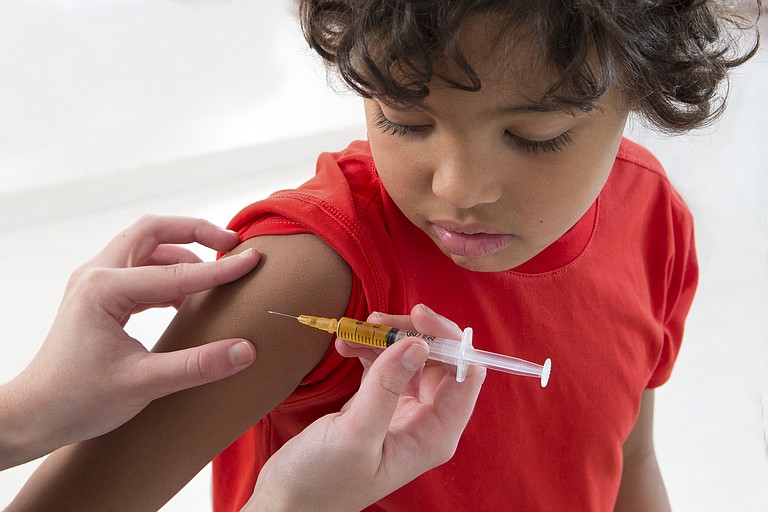
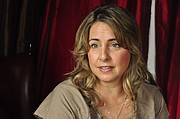
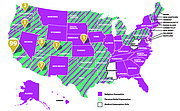
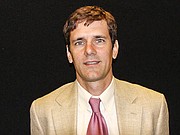
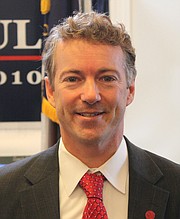
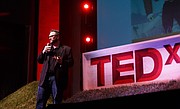
Comments
Use the comment form below to begin a discussion about this content.
Sign in to comment
Or login with:
OpenID